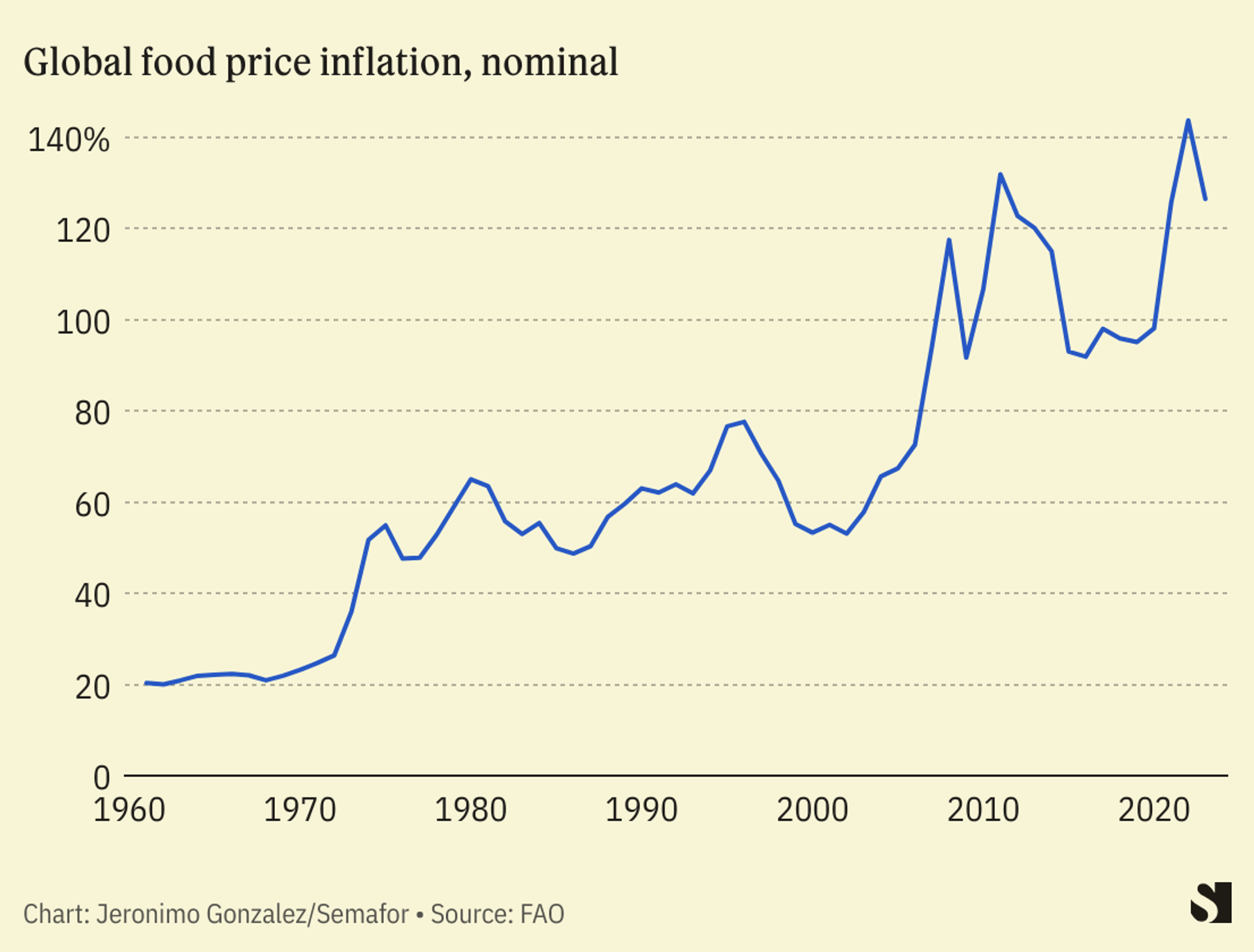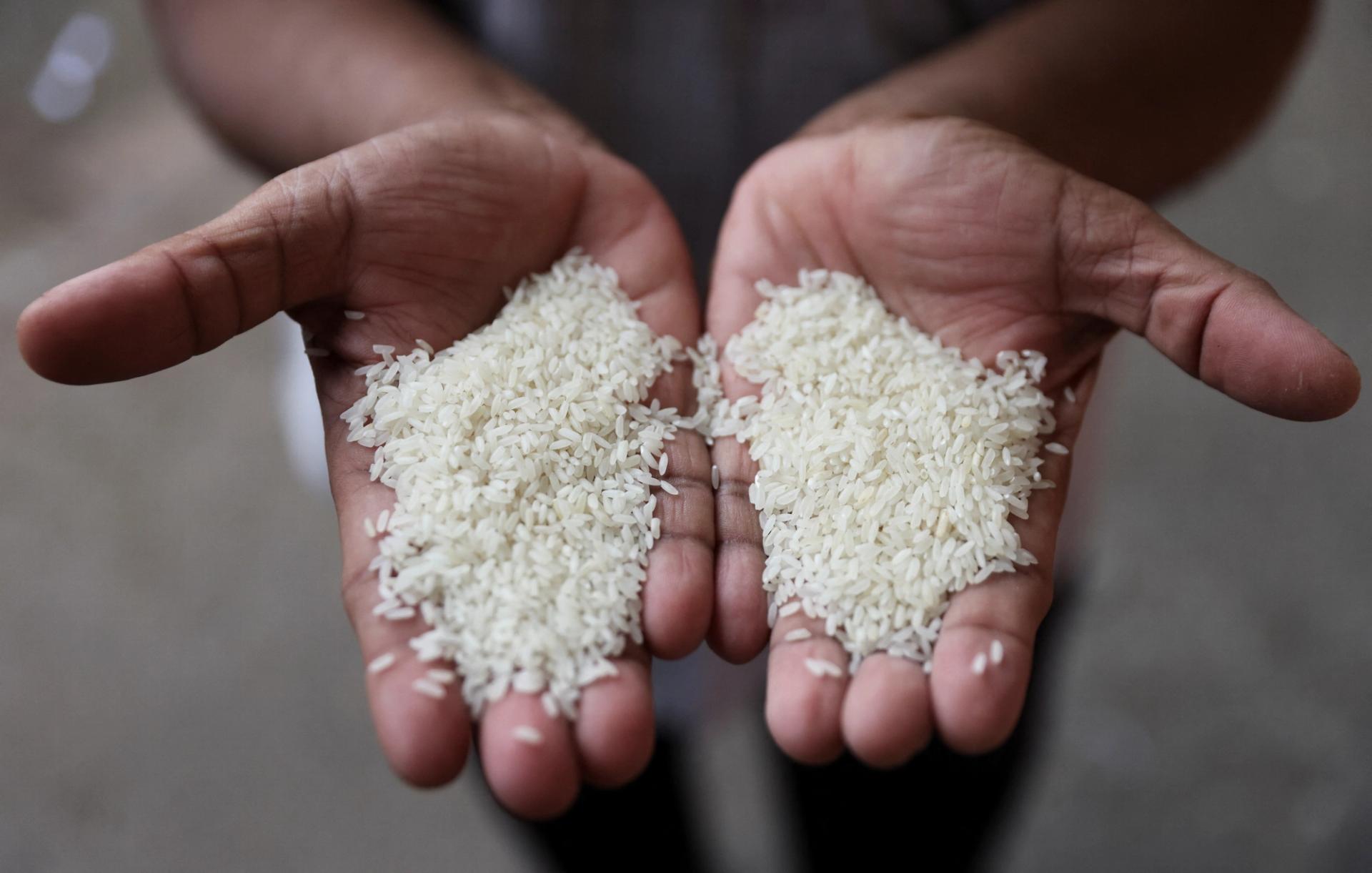The News
Despite inflation cooling, food prices across the world are soaring, owing to extreme weather events coupled with Russia’s exit from a deal that allowed Ukraine to export grain — notably wheat, of which it’s the world’s eighth largest producer.
Throughout sub-Saharan Africa, where millions are already fighting hunger, the food pice hike could be devastating.
We’ve gathered reporting and analysis on why food prices are rising and why they may remain high for the foreseeable future.
Insights

- Russia’s refusal to renew the Black Sea grain deal led to a sharp rise in wheat prices. Meanwhile, El Niño — a warm-weather pattern — led India to restrict non-basmati rice exports, contributing to a global rise of 1.3% in food prices in July, the United Nations’ Food and Agriculture Organization said. It will be especially challenging for sub-Saharan Africa to cope as people there dedicate “a larger share of their incomes to purchase food,” Maximo Torero, the FAO’s chief economist told Al Jazeera.
- While climate change can affect food production, it can also disrupt labor and transportation in the global food supply chain, Suzi Kerr, the chief economist of the Environmental Defense Fund, wrote for the Guardian. Heatwaves, wildfires, and power and internet outages affect workers in warehouses and on roads, pushing prices higher. Heatwaves alone are expected to reduce working hours worldwide by more than 2% by 2030, equivalent to a loss of 80 million full-time jobs and $2.4 trillion globally.
- Extreme weather events — from record heatwaves in Europe and the U.S. to deadly floods across China’s grain belt — are hurting the world’s food supply like never before. As these events become more frequent, they could permanently hobble the world’s food production. “It’s possible we could face unprecedented market impacts if we don’t do anything in terms of mitigation and adapting” to extreme weather events, Roderick Rejesus, agricultural economist at North Carolina State University said. — Axios
- Higher food prices may be permanent, the chief economist at the Bank of England said. Although prices in the U.K. are expected to fall by the end of the year, cheaper food is “something we may not be seeing for a while yet, if in the future at all,” Huw Pill said. Shop prices in the U.K. were 7.6% higher in July compared to the same month last year. — BBC
